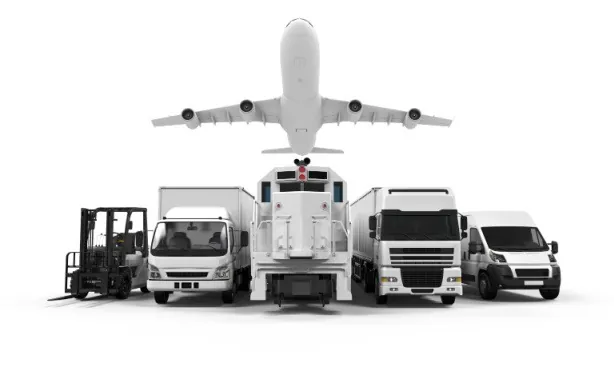
Shipping Roofing Tiles
Elevate your home's curb appeal with our roofing tile shipping service! From classic terracotta to modern slate, we deliver style and durability to protect your abode. Explore our seamless shipping solutions and give your home the crowning touch it deserves!
The Best Way to Ship Roofing Tiles
Shipping roofing tiles in large quantities is often done via full truckload freight, flatbed trailers, or dry vans. If you are shipping a small number of roofing shingles, that can be shipped in a dry van rather than a flatbed. You can save money by shipping LTL (less than a truckload).
Common Types of Roofing Materials FreightCenter Ships:
- Metal tiles
- Ceramic tiles
- Concrete tiles
- Bituminous tiles
- Polymer sand tiles
- Copper tiles
- Composite tiles
- Stone tiles
- Slate tiles
- Clay tiles
- terracotta roof tiles
- And shingles of all types
We provide competitive freight shipping prices and an all-inclusive, easy-to-use shipping experience for our customers. Exceeding our customers’ expectations results in thousands of satisfied customer reviews and repeat business. We believe in the power of our customer relationships. Check out FreightCenter reviews from real customers, and learn what they have to say about their freight shipping experience!
- 2021 Food Logistics’ Top Green Providers
- 2021 & 2018 Supply & Demand Chain Executives' Pros to Know: Matthew Brosious
- 2020 & 2019 Top Food Logistics’ 3PL & Cold Storage Provider Award
- 2020 & 2019 Business Observer’s Top 500 Companies on the Gulf Coast
- 2020 & 2017 SmartWay® Transport Partner
- 2020 & 2017 Food Logistics’ Champions: Rock Stars of the Supply Chain
- 2021 Food Logistics’ Top Green Providers
- 2020 Best of Palm Harbor Awards for Local Businesses
- 2017 Green Supply Chain Award from Supply & Demand Chain Executive
- 2017 Tampa Bay Business Journal Heroes at Work
- 2016, 2015, & 2012 Food Logistics Top 100 Software and Technology Providers
- 2013 Tampa Bay Business 100 by Tampa Bay Business Journal
- 2013 Top 100 Great Supply Chain Partners by SupplyChainBrain
- 2012 TIA Samaritan Award Honorable Mention
- 2012, 2011 & 2010 TBBJ Fast 50 Recipient
- 2013, 2011, & 2010 Diversity Business Top Businesses

Why Should You Ship Roofing Tiles With FreightCenter?
When it comes to shipping roofing tiles, FreightCenter offers several compelling reasons to choose their services:
- Expertise in Roofing Tiles Shipping: When it comes to shipping roof tiles, FreightCenter is an excellent choice for its knowledge and experience in handling delicate and valuable shipments. They understand the unique requirements and challenges of shipping roof tiles and take proper precautions to ensure proper packaging, handling, and transportation. With FreightCenter, you can trust that your roof tiles will arrive safely and on time.
- Wide Range of Transportation Options: FreightCenter offers many transportation options tailored to your specific requirements. Whether you need trucking, rail, sea, or air freight, they can cater to your shipment’s size, volume, and urgency with flexible solutions. Rest assured that your roofing panels will be delivered securely and punctually with FreightCenter.
- Compliance with Safety and Regulatory Standards: It’s vital to meet all safety and regulatory standards. Thankfully, FreightCenter is well-versed in these regulations and takes the necessary steps to ensure compliance. This includes proper labeling, documentation, and adhering to hazardous material requirements. You can trust that your roofing tiles shipment will be transported safely and in accordance with all applicable laws and regulations when you choose FreightCenter.
- Insurance Coverage: FreightCenter recognizes the importance of your roofing tiles shipments and provides comprehensive insurance choices for added protection and peace of mind. Our insurance coverage helps minimize risks linked to loss, damage, or unexpected events during transportation.
- Real-time Tracking and Communication: With FreightCenter’s cutting-edge tracking technologies, you can stay up-to-date on the status of your roofing tiles shipments. Their proactive updates keep you informed of any potential delays or issues, and their effective communication channels provide quick solutions to any problems that may arise.
When you choose FreightCenter as your roofing tile shipping provider, you’re tapping into their wealth of expertise, multiple transportation options, adherence to safety compliance, insurance coverage, global shipping capabilities, real-time tracking, and top-notch customer support. They’re dedicated to providing exceptional service, ensuring that your roofing tiles shipments are handled with precision and care for a seamless shipping experience.
How Do You Prepare Roofing Tiles for LTL Freight Shipping?
Preparing roofing tiles for LTL (Less Than Truckload) freight shipping requires careful packaging and securing to ensure they reach their destination in good condition. Here are some steps to prepare roofing tiles for LTL freight shipping:
- Choose the Right Packaging: Select appropriate packaging materials that provide sufficient protection for the roofing tiles during transit. Cardboard boxes, wooden crates, or corrugated packaging are commonly used.
- Secure the Tiles: Make sure the tiles are tightly secured within the packaging to prevent movement during transit. You can use packing peanuts, foam inserts, or bubble wrap to fill any voids and cushion the tiles.
- Stack and Layer Carefully: Stack the tiles in the packaging carefully to avoid any pressure or stress points that could lead to breakage. Consider layering them with protective material in between each layer.
- Use Banding or Strapping: Apply banding or strapping around the packaging to keep it secure and prevent the tiles from shifting during transportation. This extra layer of protection helps to hold everything together. Extruded polyester strapping is commonly used as its the strongest type of plastic strapping material.
- Label Clearly: Label the packages clearly with information such as the contents, quantity, and destination address. This ensures the freight carrier handles the tiles appropriately and delivers them to the correct location. Attaching extra copies of the bill of lading to the outside of the freight is recommended.
- Follow Weight Limits: Check the weight limits and regulations for LTL freight shipping with your chosen carrier. Please make sure the total weight of each package adheres to their guidelines.
- Consider Weather Protection: If the roofing tiles are sensitive to moisture, consider using waterproof packaging or shrink-wrap to protect them from rain or other environmental factors during transit.
- Insure the Shipment: Depending on the value of the roofing tiles, it might be wise to insure the shipment to protect against loss or damage during shipping. LTL freight carriers don’t carry insurance, only liability, which often does not cover the freight’s value.
- Work with a Reliable Freight Carrier: Choose a reputable, experienced freight carrier who handles fragile or delicate items. They will have the expertise and equipment to transport the roofing tiles safely.
- Confirm Pickup and Delivery: Double-check all the details, such as the pickup and delivery times, addresses, and contact information, with the freight carrier to ensure a smooth shipping process. Remember that a bill of lading is a contract and should have accurate details.
How Do You Prepare Roofing Tiles For FTL Freight Shipping?
Preparing roofing tiles for full truckload freight shipping is similar to LTL shipping in many ways, but there are some specific considerations to make when dealing with a full truckload. Here are the steps to prepare roofing tiles for full truckload freight shipping:
- Quantity and Loading: Ensure you have enough roofing tiles to fill the entire truckload. Optimizing the loading process can help maximize space utilization and reduce the risk of shifting during transit.
- Use Pallets: Place the roofing tiles on sturdy pallets to create a stable base for loading and unloading. Pallets also make it easier to handle the tiles with forklifts or pallet jacks.
- Stack and Arrange: Stack the tiles carefully on the pallets, ensuring they are stable and evenly distributed. Avoid overloading a single pallet, which may lead to damage or instability.
- Secure the Load: Use strong strapping or bands to secure the tiles to the pallets and prevent any movement during transportation. This step is crucial to avoid damages caused by shifting during transit.
- Shrink Wrap: Use shrink wrap to wrap the entire pallet and further secure the tiles. This will provide an extra layer of protection against dust, moisture, and potential damage.
- Labeling: Clearly label each pallet with information such as the contents, quantity, destination address, and any handling instructions. This helps with easy identification and proper handling at the destination.
- Weight Distribution: Ensure that the weight of each pallet is evenly distributed. Avoid placing heavier pallets on top of lighter ones, as this can create an unstable load.
- Weather Protection: If the roofing tiles are susceptible to weather damage, consider covering the pallets with waterproof tarps or using weather-resistant packaging if transporting via an open trailer.
- Work with a Reliable Carrier: Choose a reputable, experienced freight carrier specializing in full truckload shipments like FreightCenter. They will have the equipment and expertise to handle the roofing tiles safely.
- Coordinate Loading and Unloading: Communicate with the freight carrier to ensure they have the appropriate equipment and workforce to load and unload the roofing tiles efficiently.
- Confirm Details: Double-check all the shipment details, such as pickup and delivery times, addresses, and contact information, with the freight carrier to avoid misunderstandings or delays.
Transporting roofing tiles requires careful consideration of the mode of transportation to ensure their safe and efficient delivery. Here are 8 ways of transportation commonly used for shipping roofing tiles:
Utilize Less-than-Truckload (LTL) shipping services for smaller quantities of roofing tiles.
Arrange for Full Truckload (FTL) shipping when shipping large roofing tiles.
Use flatbed trucks for oversized or unusually shaped roofing tiles.
Combine multiple modes of transportation, such as trucking and rail, for efficient and cost-effective shipping.
Transport roofing tiles via rail for long-distance shipments or when moving many panels.
Ship roofing tiles in containers on cargo ships for international transport.
Opt for air transportation when time-sensitive delivery of roofing panels is required.
Use expedited services for urgent shipments of roofing tiles.

Shipping Roofing Tiles FAQ
Q. Can roofing tiles be shipped internationally via freight?
A. Yes, freight shipping allows for international shipments of roofing tiles. However, knowing customs regulations, import/export restrictions, and any required documentation for shipping roofing tiles to another country is crucial.
Q. How are roof shingles transported?
A. Roof shingles are typically transported in large quantities through full truckload freight or dry vans. However, if you have a small shipment, you may save costs using LTL (less than truckload) shipping in a dry van instead of a flatbed.
Q. How long does it take to ship roofing tiles via freight?
A. The shipping time for roofing tiles via freight depends on the distance, mode of transportation, carrier’s transit times, and any potential customs clearance delays for international shipments. Domestic shipments usually take a few days to a week, while international shipments can take longer.
Q. Can I track the shipment of roofing tiles during transit?
A. Yes, most freight carriers offer tracking services for roofing tile shipments. You can typically track the status of your shipment in real time using the provided tracking number or through the carrier’s online tracking system.
Q. What are the best ways to ship roofing tiles?
A. Roofing tiles can be shipped for large quantities via full truckload freight, flatbed trailers, or dry vans. Smaller amounts can be sent in dry vans or as LTL (less than a truckload) to save costs.
Q. How should I prepare roofing tiles for LTL freight shipping?
A. To prepare roofing tiles for LTL freight shipping, use appropriate packaging materials, secure the tiles tightly within the packaging, stack and layer them carefully, use banding or strapping, label the packages clearly, and ensure compliance with weight limits.
Q. How do I prepare roofing tiles for FTL freight shipping?
A. Preparing roofing tiles for full truckload freight shipping involves optimizing loading, using sturdy pallets, careful stacking and arrangement, securing the load with strapping and shrink wrap, labeling each pallet clearly, evenly distributing the weight, and coordinating with the freight carrier.
Q. How can I get a free quote for shipping roofing tiles?
A. You can get a free quote for shipping roofing tiles by visiting FreightCenter’s website and filling out the quote form with the relevant shipment details. Alternatively, you can call FreightCenter at 800.716.7608 to get assistance with obtaining a quote.
Shipping Roofing Tiles FAQ
Q. Can roofing tiles be shipped internationally via freight?
Yes, freight shipping allows for international shipments of roofing tiles. However, knowing customs regulations, import/export restrictions, and any required documentation for shipping roofing tiles to another country is crucial.
Q. How are roof shingles transported?
Roof shingles are typically transported in large quantities through full truckload freight or dry vans. However, if you have a small shipment, you may save costs using LTL (less than truckload) shipping in a dry van instead of a flatbed.
Q. How long does it take to ship roofing tiles via freight?
The shipping time for roofing tiles via freight depends on the distance, mode of transportation, carrier’s transit times, and any potential customs clearance delays for international shipments. Domestic shipments usually take a few days to a week, while international shipments can take longer.
Q. Can I track the shipment of roofing tiles during transit?
Yes, most freight carriers offer tracking services for roofing tile shipments. You can typically track the status of your shipment in real time using the provided tracking number or through the carrier’s online tracking system.
Q. What are the best ways to ship roofing tiles?
Roofing tiles can be shipped for large quantities via full truckload freight, flatbed trailers, or dry vans. Smaller amounts can be sent in dry vans or as LTL (less than a truckload) to save costs.
Q. How should I prepare roofing tiles for LTL freight shipping?
To prepare roofing tiles for LTL freight shipping, use appropriate packaging materials, secure the tiles tightly within the packaging, stack and layer them carefully, use banding or strapping, label the packages clearly, and ensure compliance with weight limits.
Q. How do I prepare roofing tiles for FTL freight shipping?
Preparing roofing tiles for full truckload freight shipping involves optimizing loading, using sturdy pallets, careful stacking and arrangement, securing the load with strapping and shrink wrap, labeling each pallet clearly, evenly distributing the weight, and coordinating with the freight carrier.
Q. How can I get a free quote for shipping roofing tiles?
You can get a free quote for shipping roofing tiles by visiting FreightCenter’s website and filling out the quote form with the relevant shipment details. Alternatively, you can call FreightCenter at 800.716.7608 to get assistance with obtaining a quote.
Advantages of Working With FreightCenter:

Cost-Effective Solutions
FreightCenter offers cost-effective shipping solutions, saving businesses time and money. As a 3PL, they have established strong relationships with carriers, allowing them to negotiate competitive rates and pass on cost savings to customers. Businesses can benefit from streamlined logistics and optimized shipping routes, minimizing expenses while ensuring reliable and efficient deliveries.

Flexible Shipping Options
With FreightCenter, businesses can access a wide range of flexible shipping options. Whether truckload, LTL, expedited, or international shipping, they can accommodate various shipment sizes and requirements. This flexibility enables businesses to adapt to changing demands, scale their operations, and quickly reach new markets.

Dedicated Customer Support
FreightCenter's commitment to customer satisfaction is evident in its dedicated customer support team. Experts are available to assist businesses at every stage of the shipping process, from initial inquiries to post-delivery support. Whether addressing concerns, tracking shipments, or providing shipment updates, FreightCenter ensures businesses receive personalized attention and top-notch service throughout their shipping journey.
